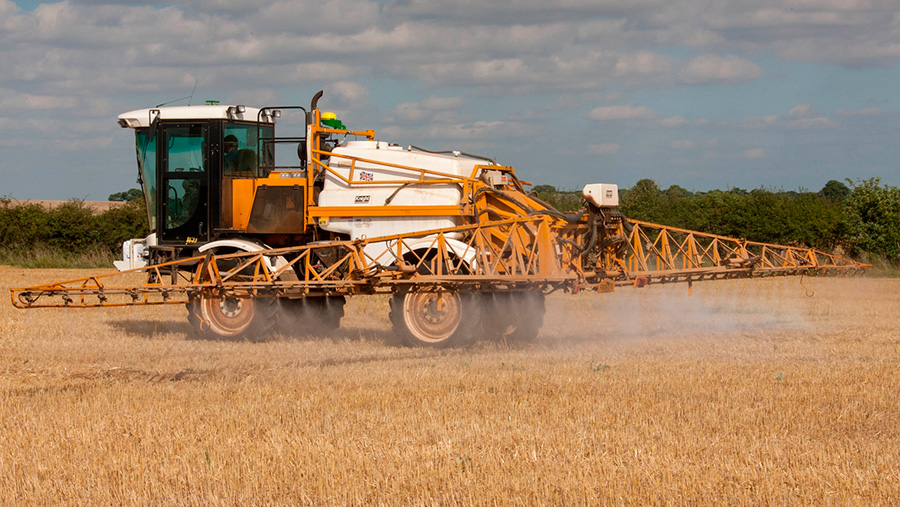EU allows petition calling for glyphosate ban
 © Tim Scrivener
© Tim Scrivener The European Commission has registered a petition calling for a ban on the use of glyphosate, the key ingredient in Monsanto’s top-selling weedkiller.
The European Citizens Initiative (ECI) calls on the commission to propose a “ban on glyphosate, to reform the pesticide approval procedure, and to set EU-wide mandatory reduction targets for pesticide use”.
The initiative will be formally registered on 25 January, starting a one-year process for the collection of signatures in support of the proposal.
See also: On-farm trials focus on growing without glyphosate
Under EU rules, if the petition reaches a total of at least 1 million signatures from at least seven different member states the commission will be forced to react within three months.
In this scenario, the commission would have to decide whether to follow the request or not. But in either case, it must explain the reasons for its decision.
The ECI is a EU mechanism introduced in 2012 with the aim of increasing democracy by enabling EU citizens to directly take part in the development of EU policies.
The petition is being supported by Greenpeace, Pesticide Action Network and European campaigning organisation WeMove.EU.
EU review
The European Chemicals Agency is undertaking a review into glyphosate and whether it should be classified as a carcinogen by the EU. The review is due to be published this summer.
It comes after a study, led by Michael Antoniou, at King’s College, London, linked glyphosate to non-alcoholic fatty liver disease in rats.
Monsanto maintains glyphosate, when used according to label directions, “does not present an unreasonable risk of adverse effects to humans, wildlife or the environment”.
In July, the European Commission extended glyphosate’s current license for 18 months, while advising members states to restrict its use on pre-harvest crops and in public places.
Any ban ‘disastrous for no-till farming’
The NFU has warned against a ban on glyphosate, saying it allows farmers to control weeds in a way that benefits the environment through its application in planting methods that protect soil structure and reduce greenhouse gas emissions.
How #glyphosate works for us all: https://t.co/LaCl7mGQfa pic.twitter.com/8KbfSOXkCj
— NFU Combinable Crops (@CropsBoard) June 28, 2016
NFU vice-president Guy Smith said: “Glyphosate can help farmers reduce their carbon footprint when it comes to reducing cultivations and drying crops.
“As we start the lobbying run in to the relicensing of glyphosate at the end of 2017 it’s not surprising to see new activity trying to demonise this key crop-protection material.
“It’s interesting the scientists behind the latest scare stories are the same ones who have tried to prove GM food causes health problems.”
Mr Smith added that the NFU was redoubling its efforts in Brussels to ensure “sound science dictates regulation”.
Essex grower Ed Ford says glyphosate is a key ingredient in his no-till farming system at Childerditch Farms, in Brentwood.
“An outright ban on glyphosate would be a disaster for growers,” he told Farmers Weekly.

